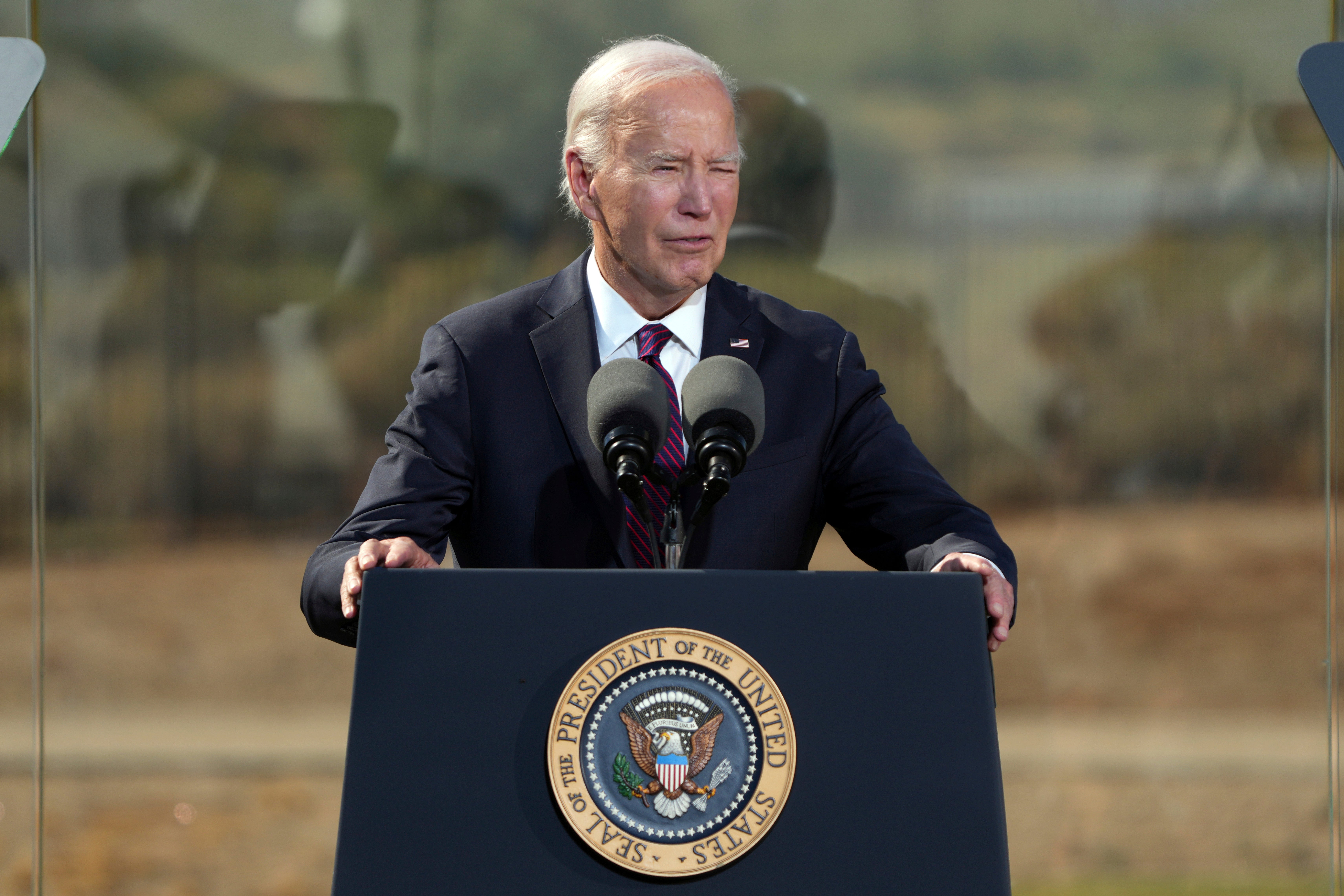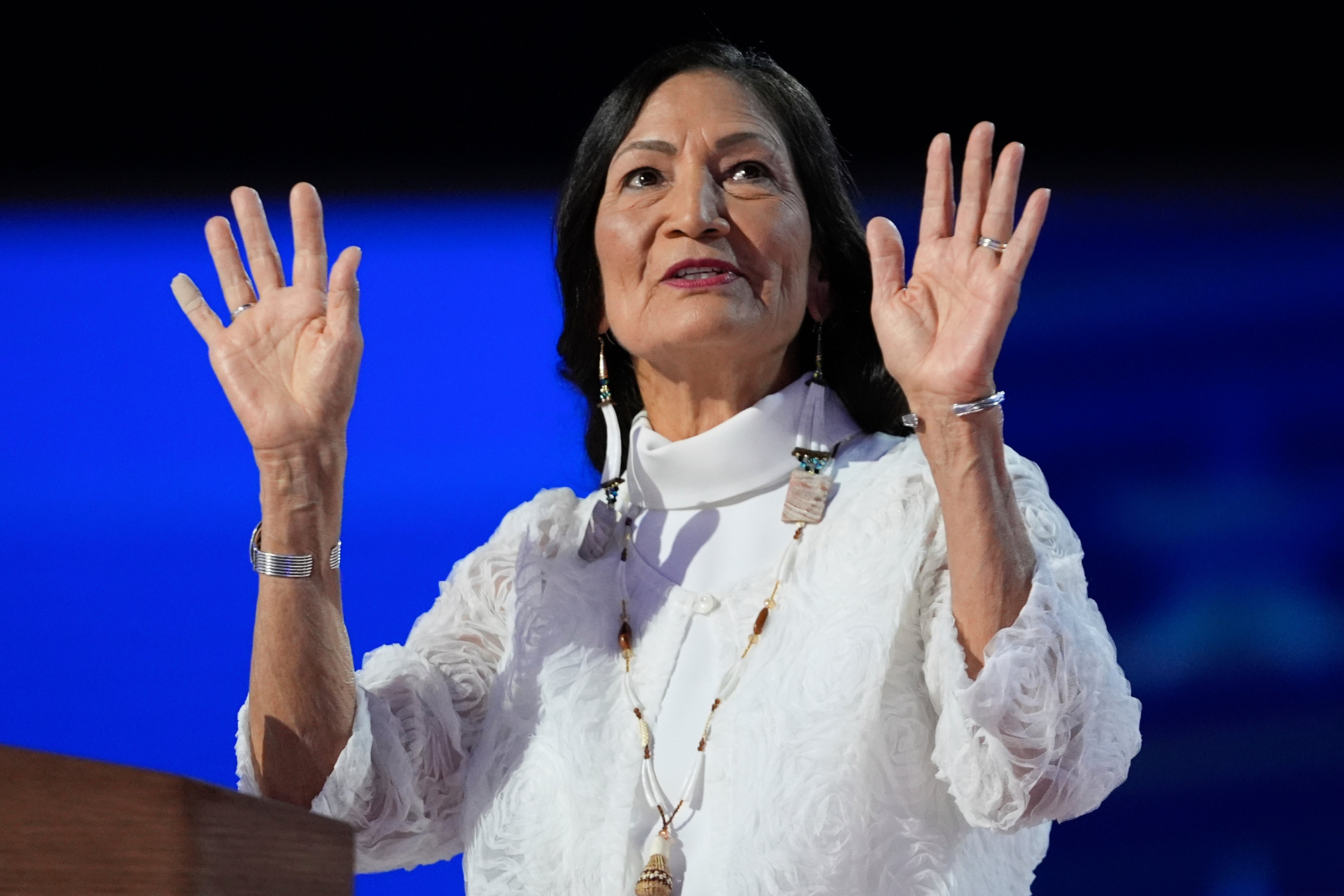Biden apologizes for Native American boarding school policy he calls ‘blot’ on US history
Biden’s visit could be a boost to Vice President Kamala Harris in a state where Native Americans are a key voting bloc

Your support helps us to tell the story
From reproductive rights to climate change to Big Tech, The Independent is on the ground when the story is developing. Whether it's investigating the financials of Elon Musk's pro-Trump PAC or producing our latest documentary, 'The A Word', which shines a light on the American women fighting for reproductive rights, we know how important it is to parse out the facts from the messaging.
At such a critical moment in US history, we need reporters on the ground. Your donation allows us to keep sending journalists to speak to both sides of the story.
The Independent is trusted by Americans across the entire political spectrum. And unlike many other quality news outlets, we choose not to lock Americans out of our reporting and analysis with paywalls. We believe quality journalism should be available to everyone, paid for by those who can afford it.
Your support makes all the difference.President Joe Biden formally apologized to Native Americans for the US government’s attempt to erase tribal culture via a system of boarding schools that separated native children from their parents for decades, calling the long-discarded policy “a sin on our soul.”
Speaking at the Gila Crossing Community School on the Gila River Indian Community Reservation in Laveen Village, Arizona, Biden said there was “no excuse” that it took a full half-century for the government to offer contrition for the system.
“I formally apologize as president of the United States of America for what we did,” he said on Friday.
The federal boarding school system routinely took Native American children from their families and forcibly re-educated them to stamp out native culture. The policy was in place from 1819 through the 1970s.
“The Federal Indian boarding school policy — the pain it has caused will only be a significant mark of shame, a blot on American history. For too long, this all happened with virtually no public attention, not written about in our history books, not taught in our schools.”
Biden also called the boarding school system “one of the most horrific chapters” in the nearly 250-year-old American story — even as it remains untold in most history books.

“As President, I believe it is important that we do know now generations of native children stolen, taken away to places they didn't know, with people they never met who spoke a language they had never heard,” he said, as he described how the children would arrive at schools to have their native clothes taken, their hair cut, and their names replaced with an English-language name.
Some children, he said, were “abused ... emotionally, physically and sexually,” with some “put up for adoption without the consent of their birth parents” and a number even “left for dead in unmarked graves.”
Roughly 1,000 Native American children are known to have died in the federally-run boarding schools, though Biden said the “real number” of deaths is “likely to be much, much higher” as he spoke of “lost generations” and the loss of “culture and language” as well as trust between native tribes and the federal government.
“I have a solemn responsibility to be the first president to formally apologize to the native peoples, Native Americans, Native Hawaiians, Native Alaskans and federal Indian boarding schools. It's long, long, long overdue,” he said.
Biden added that while the policy may have been “too shameful to acknowledge” for some Americans, bringing the true history into the light is part of America’s responsibility as a “great nation.”
“We must know the good, the bad, the truth of who we are as a nation. That's what great nations do ... we do not erase history. We make history, we learn from history, and we remember so we can heal as a nation,” he said.
Biden’s visit comes as his onetime running-mate and potential successor, Vice President Kamala Harris, is in the final days of campaigning against former president Donald Trump.
In the key swing state of Arizona, Native Americans are an important voting bloc, and Democrats are hopeful that Biden’s visit to the Gila River reservation will provide a boost in voter turnout among the tribal nations.
Four years ago, Biden became the first Democrat to carry Arizona’s electoral votes in decades when he won the popular vote there by just over 10,000 votes.
Harris is currently in a statistical tie there with Trump, according to most opinion polls.
Join our commenting forum
Join thought-provoking conversations, follow other Independent readers and see their replies
Comments